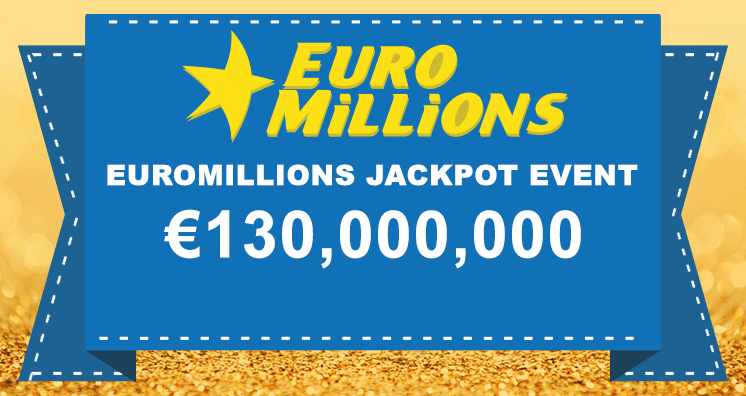
15th Apr, 2025
€39,000,000
| Result | Date | Jackpot |
|---|---|---|
|
|
|
|
|
|
|
|
|
|
|
|
|
|
|
|
|
|
|
|
|
|
|
|
|
|
|
|
|
|
|
|
|
|
|
|
|
|
|
EuroMillions Hot and Cold Numbers
Hot Numbers
- Regular Balls
-
3515 Times
-
2915 Times
-
1514 Times
-
4114 Times
-
3314 Times
-
1614 Times
-
714 Times
-
4913 Times
-
1013 Times
-
4213 Times
-
3412 Times
-
4612 Times
-
2412 Times
-
1812 Times
-
412 Times
-
4712 Times
-
1412 Times
-
5011 Times
-
311 Times
-
4511 Times
-
1111 Times
-
811 Times
-
3611 Times
-
2511 Times
- Additional
-
821 Times
-
920 Times
-
720 Times
-
120 Times
-
618 Times
-
1217 Times
Cold Numbers
- Regular Balls
-
53 Times
-
384 Times
-
404 Times
-
264 Times
-
435 Times
-
317 Times
-
327 Times
-
67 Times
-
287 Times
-
238 Times
-
18 Times
-
218 Times
-
128 Times
-
198 Times
-
28 Times
-
179 Times
-
229 Times
-
139 Times
-
399 Times
-
449 Times
-
279 Times
-
3710 Times
-
4810 Times
-
910 Times
-
2010 Times
-
3010 Times
- Additional
-
1111 Times
-
213 Times
-
1013 Times
-
315 Times
-
516 Times
-
416 Times
EuroMillions, a transnational lottery, is one of the most popular games in the industry. It offers mega-sized jackpots that grows when a rollover occurs. In other words, you can win hundreds of millions here – and in Euros, too. I know you're probably itching to head on over to your favorite lottery site to play, but, before you do, read on and arm yourself with some EuroMillions knowledge!
About EuroMillions

EuroMillions was launched on February 7, 2004 by France's, Spain's and United Kingdom's respective lottery operators. Initially, the aforementioned countries were the only ones that participated in the EuroMillions draws, but Austria, Belgium, Ireland, Luxembourgh, Portugal and Sweden later joined in on the October 8, 2004 drawing. Residents of legal gambling age from these 9 countries can participate in EuroMillions – though online players from other countries are welcome as well.
Quick EuroMillions Facts
- Mega Prizes: True to its name, EuroMillions can offer jackpots well into the hundreds of millions in Euros.
- Bi-Weekly Draws: Draws are held bi-weekly, on Tuesdays and Fridays, at Paris. This means that, yes, you can have twice the chances of winning each week.
- Tax-Free: Except for residents of Switzerland, Spain and Portugal, all prizes (including the jackpot) are 100% tax-free.
- Lump Sum: Prizes are paid in lump sum, and there is no annuity adjustment.
How to Play EuroMillions
The Basics
EuroMillions is slightly similar to how other lottery games function – but they put their own spin on the formula. The gist is this: You select five numbers from 1 to 50, plus two additional numbers – also known as Lucky Stars – from 1 to 12. For players to win the jackpot, all five main numbers and both Lucky Stars have to match the combination drawn. The standard pricing for one EuroMillions ticket costs €2.50, but it may be a bit higher in some online outlets due to additional fees imposed by some lottery sites.
The Super Draw

The EuroMillions Super Draws are special events held every now and then that ensures a big payout to winners. These draws function pretty much the same as any regular EuroMillions draw, with one difference: jackpots are set to a guaranteed amount of at least €130 million. Should no one win the jackpot, it will simply roll over to the succeeding draw, and the next, and so on until it reaches the €190 million jackpot cap. The jackpot can remain at the aforementioned cap for a total of four drawings.
If no one still wins the jackpot, then the prize money will be distributed among winners of the 2nd prize tier. This is what is called an Event Draw. So far, however, there has never been a EuroMillions Event Draw.
The Odds of Winning
If you were thinking that it would be impossible to match all 5 numbers, plus 2 Lucky Stars, you'd be surprised to know that you actually have much better odds of winning a EuroMillions jackpot than, say, a Powerball one. Compared to the latter's 1 in 292,201,338.00 odds, EuroMillions' odds look much, much better. The overall odds for winning any prize, for instance, are 1 in 13 – pretty impressive, if you ask me. Take a gander at the table below to see what I mean:
| Numbers Matched | Odds of Winning |
| 5 + 2 | 1 in 139,838,160 |
| 5 + 1 | 1 in 6,991,908 |
| 5 + 0 | 1 in 3,107,515 |
| 4 + 2 | 1 in 621,503 |
| 4 + 1 | 1 in 31,076 |
| 3 + 2 | 1 in 14,126 |
| 4 + 0 | 1 in 13,812 |
| 2 + 2 | 1 in 986 |
| 3 + 1 | 1 in 707 |
| 3 + 0 | 1 in 314 |
| 1 + 2 | 1 in 188 |
| 2 + 1 | 1 in 50 |
| 2 + 0 | 1 in 22 |
The Biggest EuroMillions Winners
I've said this before, but I'll say it again: EuroMillions' odds are pretty impressive for a lottery of this scale. In fact, there have been a total of 365 jackpot winners from the 9 countries that run EuroMillions. Here are some of the biggest winners:
- One of the biggest EuroMillions' jackpots won was back in October 24, 2014, when an anonymous winner from Castelo Branco, Portugal nabbed the €190 million prize. The astronomical prize was the result of six roll overs.
- The jackpot has reached the €190 million jackpot ceiling other times as well. Interestingly, these happened in October as well. One was in October 6, 2017, and another in October 8, 2019. We're sensing some kind of pattern here..
- In August 12, 2012, couple Adrian and Gillian Bayford won the £148,656,000 jackpot. Their story took a sad turn, however, as their new life – and the new problems that come with it – took a toll on their relationship. They have since divorced and are now living separate lives.
- Next up are Colin and Chris Weir who, in July 12, 2011, won the £161,653,000 jackpot. The couple went on to establish the Weir Charitable Trust, a charity organization that aims to support the Scottish community by way of funding worthwhile projects.
So What Happens if You Win?
Unlike other lottery games, if you win the jackpot in EuroMillions, you don't have the option to be paid in annuity. Instead, jackpots are paid as a lump sum – which means that you get to take home more than if annuity adjustments were involved.
As for taxes, you will be glad to know that EuroMillions games are tax-free – except for three European countries, that is. Portugal, for starters, takes 20% taxes from prizes exceeding €5,000. Spain, on the other hand, takes 20% off from prizes that exceed €2,500. Switzerland players have it worst though. The taxes collected from their winnings are approximately 35%.
Because EuroMillions is a transnational lottery, there will be differences with how countries handle certain aspects of the game (as shown above regarding taxes). The time period you are allowed to claim your prize is no different. Austria, for example, gives winners a total of 28 days from the date of the draw to collect their winnings. Countries like France and Monaco, meanwhile, gives you 60 days. Luxembourg does the same.
EuroMillions History and Fun Facts
- France is said to be the luckiest country that runs the EuroMillions. In fact, over 85 jackpot wins have been recorded to come from the country.
- The 3rd biggest EuroMillions winners, Colin and Chris Weir, became richer than Ringo Starr (whose worth was £150 million), Phil Collins (whose worth was £115 million), and even the late David Bowie (whose worth was £100 million), at the time.
- The odds of EuroMillions are so promising that, if you entered every draw for a year, there is a very high chance that you'd win 8 times, on average.
- The June 8, 2012 draw would have made the winner £63,837,543.60 richer – if he/she bothered to claim it!
Bottom Line on EuroMillions
It's easy to see why EuroMillions became one of the most popular lotteries around. Not only does it offer players the chance to win millions of Euros, the lottery is known to have pretty good odds compared to other lottery games. A 1 in13 odds of winning any prize is definitely impressive, after all. Beyond that, it's also a largely tax-free lottery – with the exception of a few countries – and jackpots are paid out in lump sums. In short, there's a good chance that you're going to take home more of your winnings. Joining a EuroMillions drawing is a no-brainer, really.
